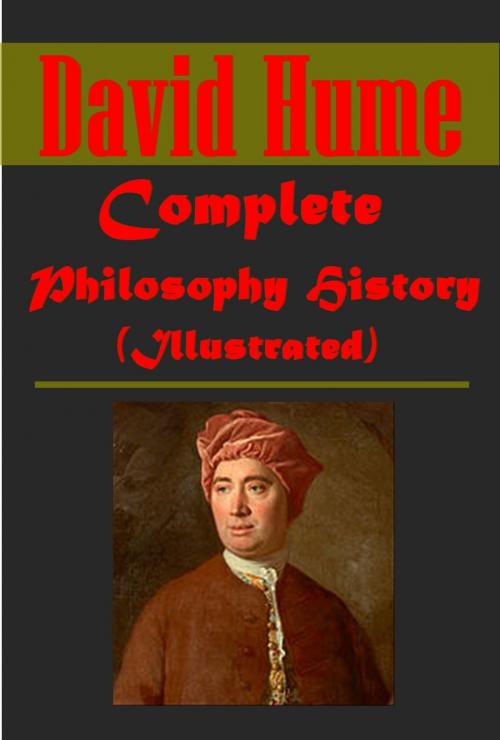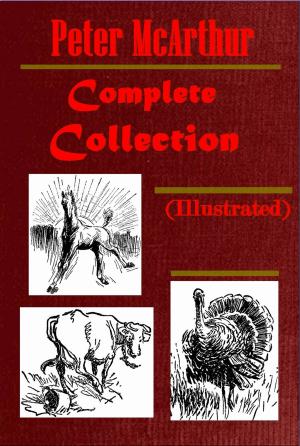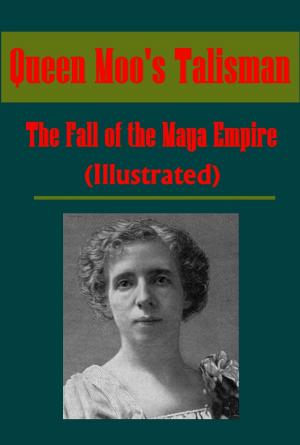Complete Philosophy & History (Illustrated)
Nonfiction, Religion & Spirituality, Philosophy, Methodology, Ethics & Moral Philosophy, History, British| Author: | David Hume | ISBN: | 1230000310070 |
| Publisher: | AGEB Publishing | Publication: | March 10, 2015 |
| Imprint: | Language: | English |
| Author: | David Hume |
| ISBN: | 1230000310070 |
| Publisher: | AGEB Publishing |
| Publication: | March 10, 2015 |
| Imprint: | |
| Language: | English |
A Scottish historian, philosopher, economist, diplomat and essayist known today especially for his radical philosophical empiricism and scepticism.
He wrote The History of England which became a bestseller, and it became the standard history of England in its day.
Contents
The History of England, Volume I
A Treatise of Human Nature
An Enquiry Concerning Human Understanding (1777)
An Enquiry Concerning the Principles of Morals (1777)
Dialogues Concerning Natural Religion
Essays
Life and Correspondence of David Hume, Volume I (of 2) by John Hill Burton
Life and Correspondence of David Hume, Volume II (of 2) by John Hill Burton
The History of England (1754–61) is David Hume's great work on the history of England, which he wrote in installments while he was librarian to the Faculty of Advocates in Edinburgh. It was published in six volumes in 1754, 1756, 1759, and 1761. The first publication of his History was greeted with outrage by all political factions, but it became a best-seller, finally giving him the financial independence he had long sought. Both the British Library and the Cambridge University Library, as well as Hume's own library, still list him as "David Hume, the historian." Hume's History spanned "from the invasion of Julius Caesar to the Revolution of 1688" and went through over 100 editions. Many considered it the standard history of England in its day.
A Treatise of Human Nature-
Hume hopes "to explain the principles of human nature", thereby "propos[ing] a compleat system of the sciences, built on a foundation almost entirely new, and the only one upon which they can stand with any security." But an a priori psychology would be hopeless: the science of man must be pursued by the experimental methods of the natural sciences. This means we must rest content with well-confirmed empirical generalizations, forever ignorant of "the ultimate original qualities of human nature". And in the absence of controlled experiments, we are left to "glean up our experiments in this science from a cautious observation of human life, and take them as they appear in the common course of the world, by men's behaviour in company, in affairs, and in their pleasures."
A Scottish historian, philosopher, economist, diplomat and essayist known today especially for his radical philosophical empiricism and scepticism.
He wrote The History of England which became a bestseller, and it became the standard history of England in its day.
Contents
The History of England, Volume I
A Treatise of Human Nature
An Enquiry Concerning Human Understanding (1777)
An Enquiry Concerning the Principles of Morals (1777)
Dialogues Concerning Natural Religion
Essays
Life and Correspondence of David Hume, Volume I (of 2) by John Hill Burton
Life and Correspondence of David Hume, Volume II (of 2) by John Hill Burton
The History of England (1754–61) is David Hume's great work on the history of England, which he wrote in installments while he was librarian to the Faculty of Advocates in Edinburgh. It was published in six volumes in 1754, 1756, 1759, and 1761. The first publication of his History was greeted with outrage by all political factions, but it became a best-seller, finally giving him the financial independence he had long sought. Both the British Library and the Cambridge University Library, as well as Hume's own library, still list him as "David Hume, the historian." Hume's History spanned "from the invasion of Julius Caesar to the Revolution of 1688" and went through over 100 editions. Many considered it the standard history of England in its day.
A Treatise of Human Nature-
Hume hopes "to explain the principles of human nature", thereby "propos[ing] a compleat system of the sciences, built on a foundation almost entirely new, and the only one upon which they can stand with any security." But an a priori psychology would be hopeless: the science of man must be pursued by the experimental methods of the natural sciences. This means we must rest content with well-confirmed empirical generalizations, forever ignorant of "the ultimate original qualities of human nature". And in the absence of controlled experiments, we are left to "glean up our experiments in this science from a cautious observation of human life, and take them as they appear in the common course of the world, by men's behaviour in company, in affairs, and in their pleasures."















